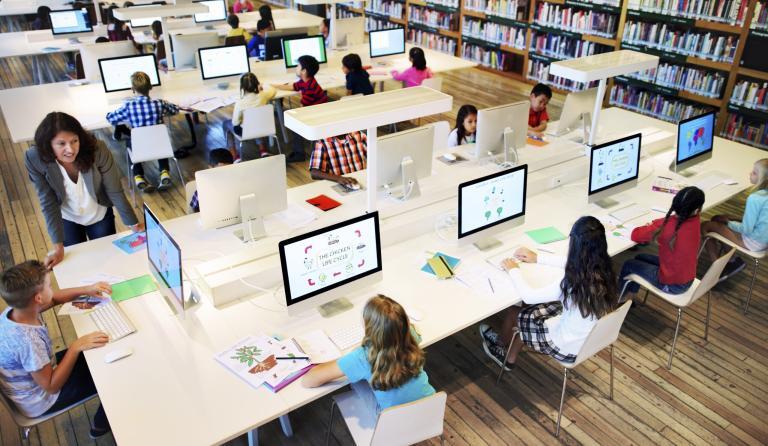The decline and potential regrowth of the school library

Secondary school libraries have changed significantly in recent years. Often for the worse, and for a number of different reasons.
However, with a greater understanding of the positive impact of libraries, and a growing number of measures to redress the current decline in school libraries, we are seeing the beginnings of transformative change.
How lack of funding affects school libraries
When schools are struggling with reduced funding, the school library is one area likely to suffer.
Research for the 2023 Great School Libraries Report found that the percentage of secondary schools with a designated on-site library area has fallen from 96% to 86% in the last five years. The same report revealed that 15% of secondary schools surveyed have no financial support for library services. Of those that do, 69% reported that the budget has stayed the same or decreased – effectively reducing spending power.
A 2002 report [Cremin and Coles] states that most young people source their next book simply by checking the shelves. If budget cuts mean those shelves are sparsely stocked, the sense of reading for pleasure is diminished. For the disadvantaged with no books at home, this reinforces the assumption that reading for pleasure ‘isn’t for them’.
The support of a school librarian and other trained library staff plays an important part in encouraging reading. However, 23% of secondary schools surveyed for the Great School Libraries Report do not have a designated library staff member, due to budget constraints. Even in schools with library staff, a third are untrained.
School libraries and the Covid Conundrum
Much has been made of the rise in reading for pleasure during the Covid lockdown. No longer able to attend school, isolated from friends and with time on their hands, children turned to books. The conundrum is that despite this positive trend, the decline in school libraries continues.
The number of school libraries was falling before the pandemic. The 2019 Great School Libraries Report found that around one in eight of the schools surveyed had no designated library space. Existing pressures were then exacerbated by Covid.
Some libraries were temporarily repurposed as teaching areas. Under the budget and staffing pressures outlined above, some of this repurposing has become permanent. In addition, budgets being directed away from libraries into other areas has added to the drop in dedicated spaces for books and reading.
So although there was a Covid-related rise in young people reading, it was weighted towards those with ready access to books. Libraries and library funding bore the brunt of Covid, and disadvantaged children suffered the consequences.
Nurturing the regrowth of the school library
Research shows that, for secondary school students, a secondary school library provides more than just books. For example, a paper by Williams, Wavell and Morrison (2013) stated that ‘School libraries have been proven to lead to better academic attainment, better learning outcomes, and better attitudes towards learning.’
To those benefits can be added greater reading proficiency, greater personal wellbeing and feelings of inclusivity, as well as benefits for teaching staff and the whole school community. Clearly it is essential for secondary schools to take steps to restore and revive their libraries, recognising the library’s importance, value and inclusivity.
Those steps could be as simple as giving responsibility to one dedicated person. Student literacy scores suggest that student literacy benefits from access to qualified library staff and robust, well-resourced library system1. Setting aside time for students to access the library will also prove valuable, as will more library opening hours and access outside lesson time. Implement these kind of changes in a secondary school library and it will soon be possible to see the benefits.
A space free from prejudice and hierarchy will help promote mental wellbeing, and in turn encourage wider use. Wider use will help foster a love of reading for pleasure, leading inevitably to improved literacy. And greater literacy, together with access to a range of books and information, will help to establish skills and habits for lifelong growth and development.
Regrettably, school libraries and their staff are not widely recognised as the important assets that they are. Initiatives such as the School Library Association Enterprise of the Year Award for library developmental projects, sponsored again this year by Reading Cloud, are helping to address this. Meanwhile progressive secondary schools and their leaders are transforming their libraries and how they are perceived, and returning them to their rightful position at the heart of the school.
1. US: Lance & Kachel, Citation 2018; Small et al., Citation 2010. Australia: Hughes et al., Citation 2013
Ready to transform your school library?
Don’t miss out on the opportunity to elevate your students’ library experience. If you’re not yet part of the Reading Cloud family, now is the perfect time to find out more about what we can offer your school. Book a no obligation demo with one of our expert Sales team today and discover how Reading Cloud can transform your school library.

